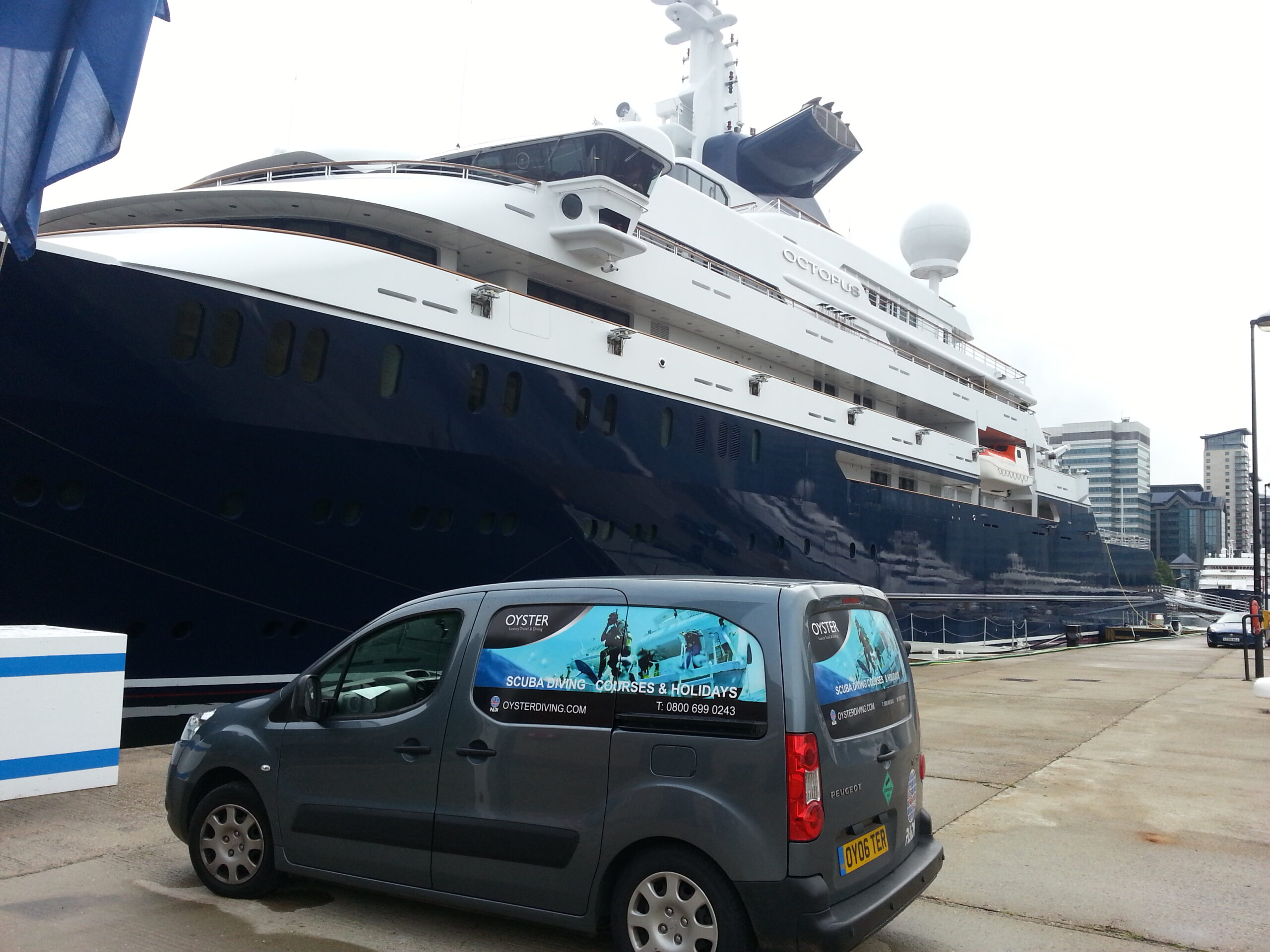Scuba Diving from Super Yachts May Leave You in Hot Water
Super Yacht Owners May be Left in Hot Water

Ever since Jacques Cousteau invented the aqua lung and shared his incredible adventures with a worldwide TV audience, scuba diving has been a favourite pastime among yacht owners and their guests.
Many yachts are equipped with various amounts of recreational scuba diving equipment these days. Some have just a few bits for taking to the nearest dive centre on a nearby island, to others that are fully equipped with a fully operational dive centre that includes compressors, on board instructors and the latest sets of kit. Some even have their own submarines that can reach the deepest ocean depths.
Paul Allen has famously used his yachts for the exploration of lost historical wrecks including the Japanese WWII battleship the Musashi and USS Indianapolis.
In 2019 new legislation is coming in to force that means that Yachts that offer offshore diving and have their own compressors must now adhere to stricter maritime regulations to help ensure the safety of crew, guests and divers. These guidelines include:
Compressors, Membranes, Diving Cylinders, their associated pipe work and pressure components are manufactured in accordance with an appropriate recognised National or International standard and suitable for the intended service conditions.
Piping systems carrying mixed gas or oxygen under high pressure are not to be routed through Accommodation Spaces, Galleys, Machinery Spaces or any other high risk areas.


Flexible hoses used for filling, which are located between the distribution piping and the Diving Cylinders are to be the minimum length necessary for normal filling operations. Such hoses are to have their open ends taped, capped or plugged when not in use.
Careful consideration shall be given to the location of compressor inlets, with respect to ensuring that contaminated air cannot be drawn in. For information regarding Air Quality (including requirements for monitoring and sampling), reference shall be made to an appropriate recognised National or International standard such as BS EN 12021:2014 ‘Respiratory Equipment – Compressed Gases for Breathing Apparatus’.
Diving Air Cylinders shall be inspected and tested in accordance with BS EN 1968:2002 (Steel) and BS EN 1802:2002 (Aluminium). Records of such tests shall be retained on-board.
Oyster Diving, are leading the way to ensure that yachts not only adhere to these latest standards but surpass them to ensure that the most stringent safety standards are implemented. Mark Murphy, Managing Director of Oyster Diving says “we have recently started working with a number of large global charter fleets. We are implementing UK and European health and safety standards which are the highest in the world. If you adhere to these you minimise the risk of a potentially fatal accident and reduce or minimise your liability if a problem ever did occur, wherever you are in the world”.

There have been a number of instances reported in the press recently regarding scuba diving related incidents such as carbon monoxide poisoning, divers running out of air and equipment failures through lack of servicing that have led to various levels of injury and in some cases death. Murphy advises “With the correct procedures and precautions all of these oversights could have been avoided. Our High Pressure Air technicians have worked with some of the most demanding customers in the world including the Royal Navy. They are shocked by some of the equipment they see used in the private sector. We can offer the highest level of service for yachts including high pressure air and mixed gas installations, surveys of existing equipment, repairs and servicing to ensure that the new maritime regulations are met and exceeded. Combined with our multi-award winning 5 star PADI dive school , equipment sales and travel centre means that we are the only dive centre in the world that can offer a complete one-stop scuba service which includes on board scuba diving courses from beginner to instructor level, dive guides, sales of the latest equipment, servicing, dive site recces and reports, risk assessments, safety divers and we can even register Yachts as official PADI recreational facilities allowing owners to have the name of their vessels on their guests PADI cards!”
With so many other parts of yachts requiring constant attention and maintenance it is often the scuba diving equipment that gets overlooked. The “if it works then it’s okay approach” could leave you in very hot water. Make sure that if you do offer scuba diving from your yacht that it is installed correctly, properly maintained through regular servicing and that anyone using any form of diving equipment is properly trained.
If you would like more information then the diving professionals at Oyster Diving are happy to assist, simply e-mail info@oysterdiving.com.
